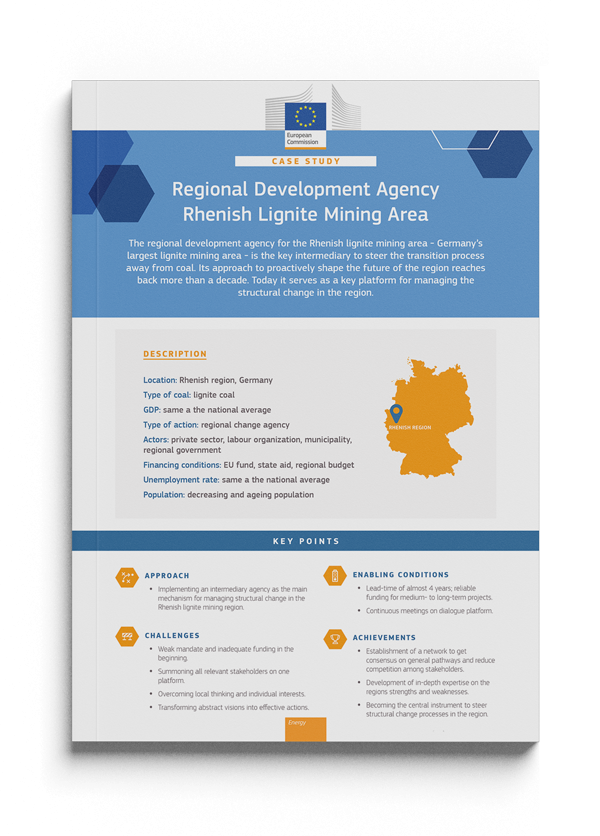Categories: Case study, Location: Rhenish region, Germany Date: September, 2020

The Rhenish lignite mining region in western Germany is a rural area with 2.5 million inhabitants, where coal mines and power plants employ 10,000 people. However, the availability of cheap lignite attracted many energy-intensive industries which provide more than 90,000 jobs. More than 10% of all employees in the region work in the sector. Moreover, the extended Rhenish region, including the urban centres of Cologne, Düsseldorf and Aachen is an important industrial location, generating 9.5% of the national gross domestic product (GDP), due to industry and energy-intensive industries. With these numbers in mind, the regional authorities were discussing the future of the region well before Germany’s recent coal phase-out plans. In 2010, the government of North Rhine-Westphalia emphasised starting an “action programme” for the lignite coal region. By that time, hard coal extraction in the Ruhr area had been in crisis for several decades. Extensive structural change support programs have been in place, but largely in reaction to a decline of coal mining due to economic and technological factors. Against this backdrop, and foreseeing that regional jobs in lignite mining would eventually also decrease, the government wanted to explore ways to be proactive. Under the lead of the chamber of industry and commerce in Aachen, the project “Innovation Programme Rhenish Coal Region” was set up to address the anticipated deep structural changes in the foreseeable future.
- Resource Topic
- Economic development
- Resource Type
- Case Study
